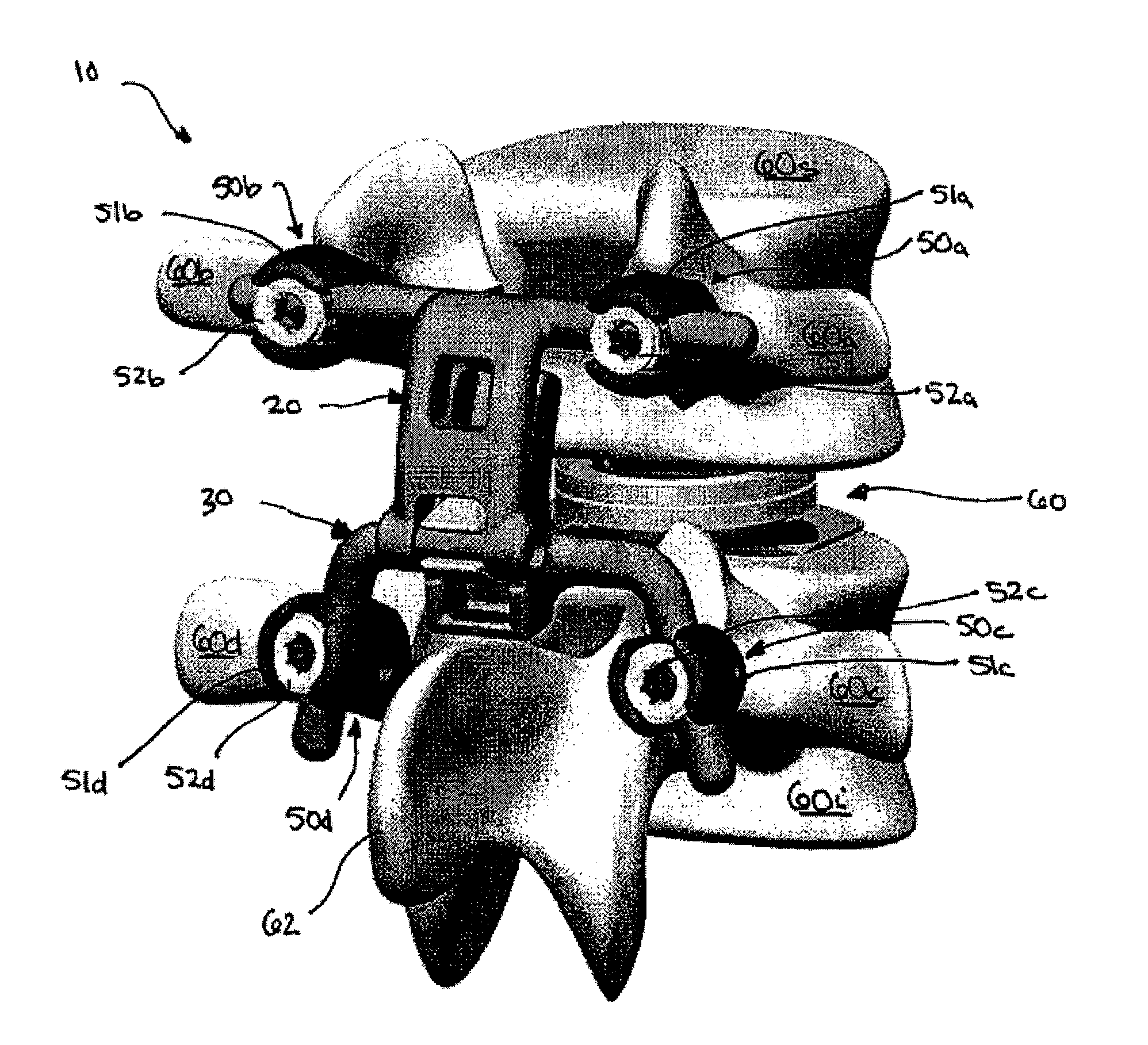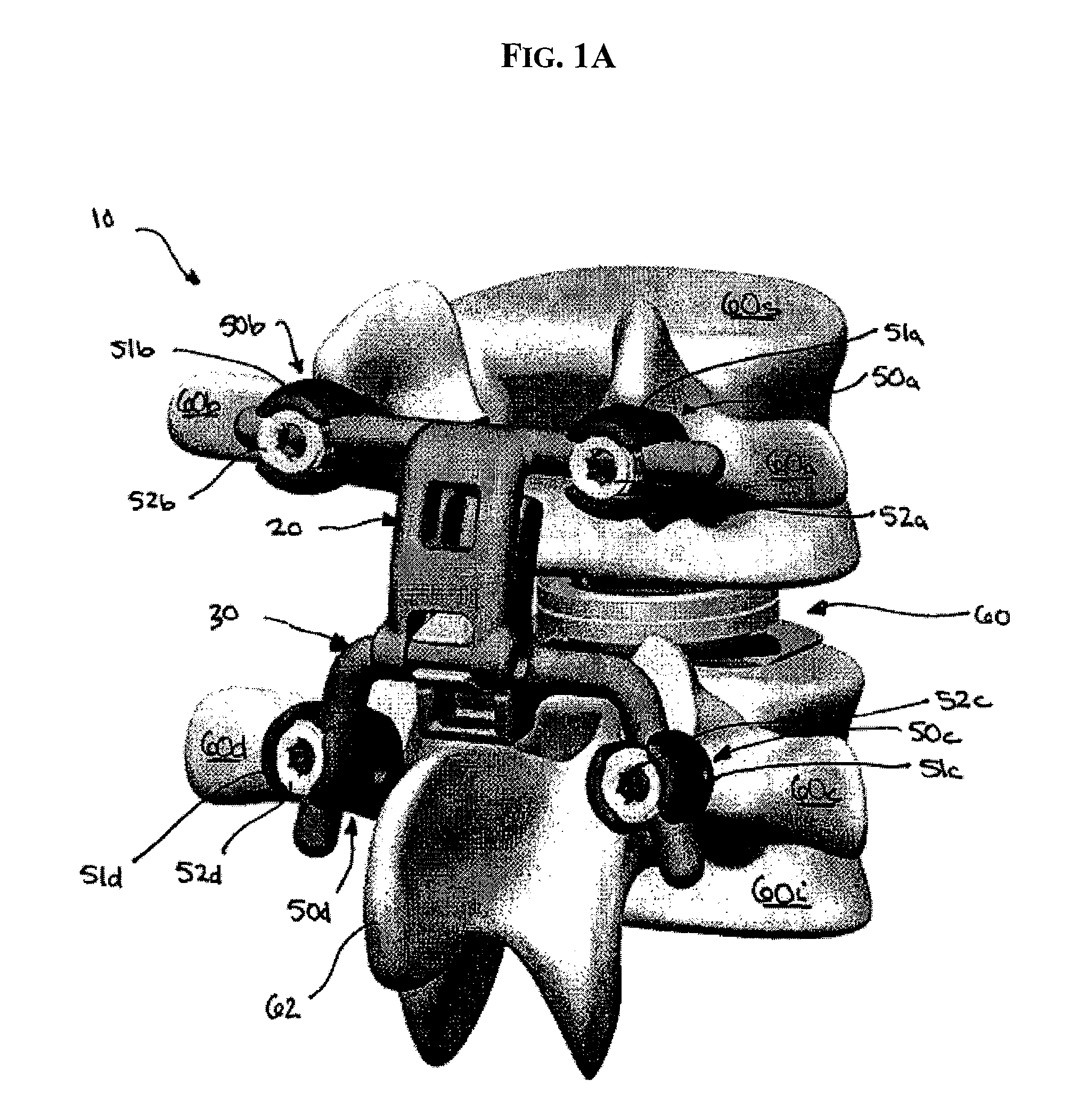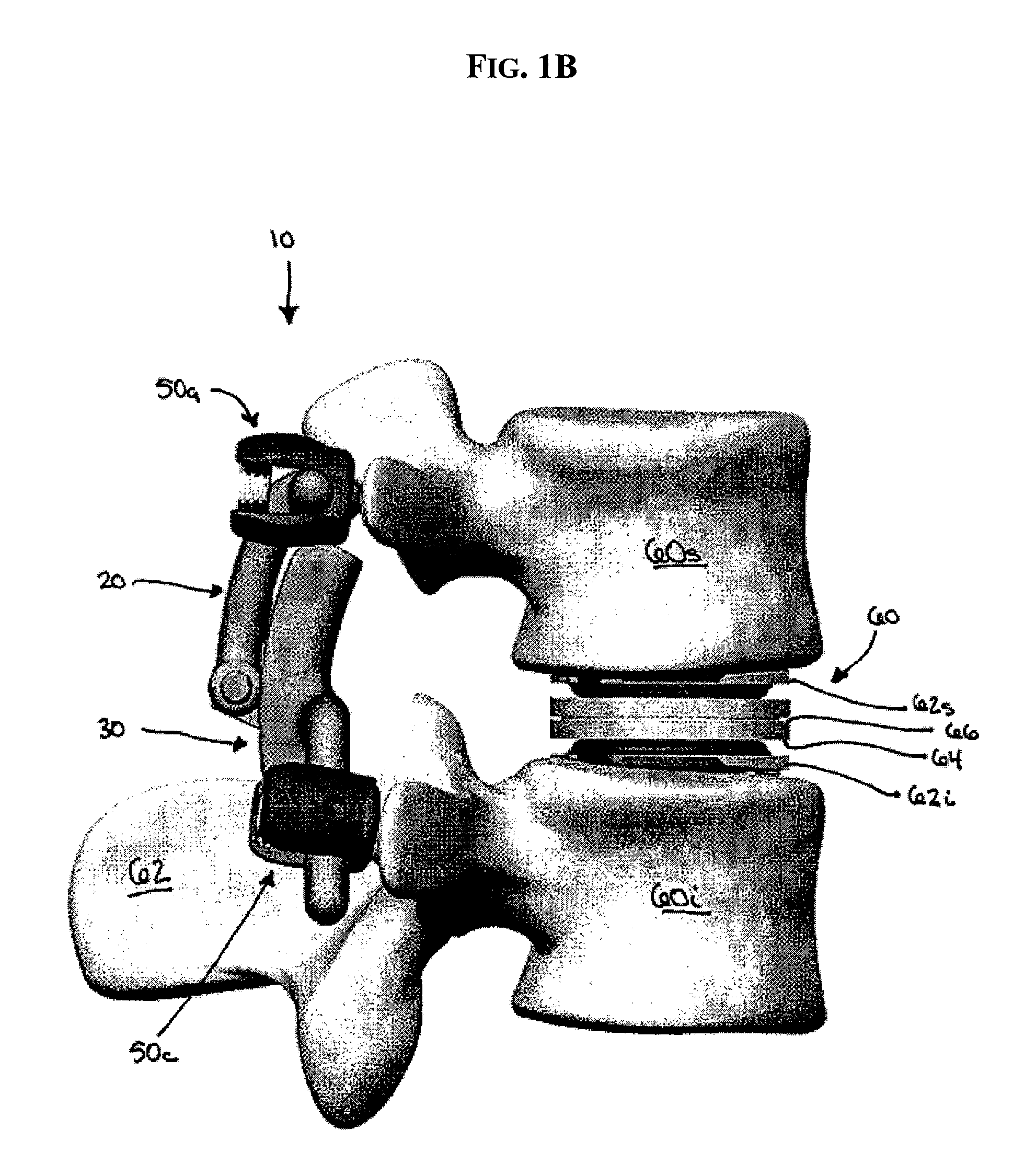Posterior stabilization system
a stabilization system and posterior vertebrae technology, applied in the field of spinal instrumentation, can solve the problems of limiting the use of capping techniques, pain, neurological dysfunction, and kyphosis (abnormal forward curvature of the spine), and achieve the effect of limiting the axial rotation of adjacent vertebra
- Summary
- Abstract
- Description
- Claims
- Application Information
AI Technical Summary
Benefits of technology
Problems solved by technology
Method used
Image
Examples
Embodiment Construction
[0021]The present invention provides various methods and devices for replacing damaged, injured, diseased, or otherwise unhealthy posterior elements, such as the facet joints, the lamina, the posterior ligaments, and / or other features of a patient's spinal column. In one exemplary embodiment, a posterior implant is provided and it can be adapted to control movement of two or more adjacent vertebrae. In particular, the implant can be adapted to control extension, flexion, and lateral bending of the adjacent vertebrae. The implant can also be adapted to substantially prevent axial rotation of the adjacent vertebrae. In another exemplary embodiment, the implant can have an envelope of motion that is within an envelope of motion of a disc, either natural or artificial, that is disposed between the adjacent vertebrae. In other words, the implant can be configured to allow flexion, extension, and lateral bending of the vertebrae within the amount of flexion, extension, and lateral bending...
PUM
 Login to View More
Login to View More Abstract
Description
Claims
Application Information
 Login to View More
Login to View More - R&D
- Intellectual Property
- Life Sciences
- Materials
- Tech Scout
- Unparalleled Data Quality
- Higher Quality Content
- 60% Fewer Hallucinations
Browse by: Latest US Patents, China's latest patents, Technical Efficacy Thesaurus, Application Domain, Technology Topic, Popular Technical Reports.
© 2025 PatSnap. All rights reserved.Legal|Privacy policy|Modern Slavery Act Transparency Statement|Sitemap|About US| Contact US: help@patsnap.com



